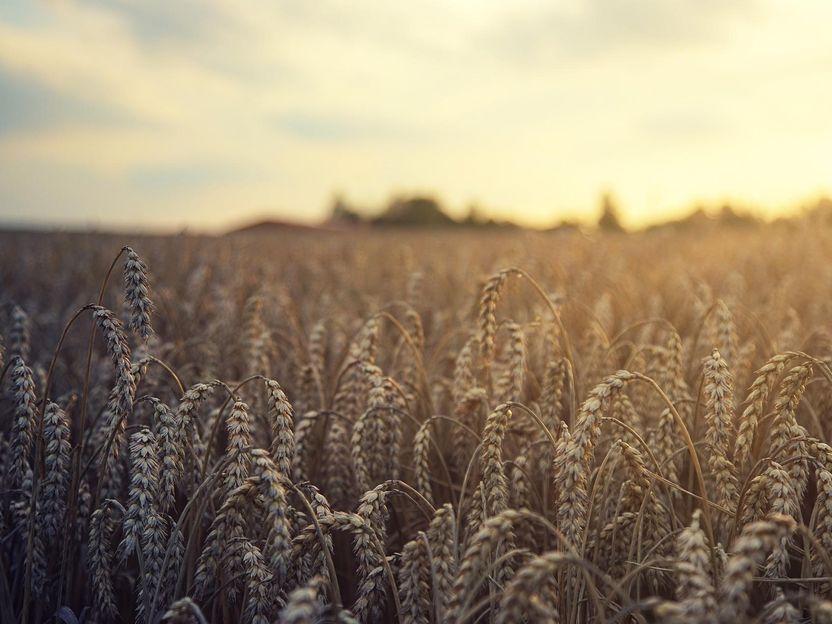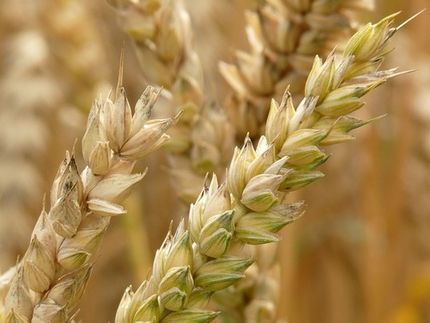Key to global food security?
Exploiting the genetic yield gap in wheat could significantly improve global food security. This is one of the key findings of an international study on wheat yield gaps in which the University of Göttingen was involved. The study, which uses a novel process-based modeling approach, also suggests that global wheat production could be doubled if wheat genotypes were better adapted to their target environment. The findings appeared in the journal Nature Food.

Bild von jplenio auf Pixabay
Russia's ongoing war against Ukraine has led to rising food prices, which have hit poorer countries dependent on grain imports the hardest. As a result, global food security is once again high on the political agenda. However, even without such price spikes, a substantial increase in food production will be needed in the coming decades to ensure global food security while preserving natural resources. This challenge is exacerbated not only by rapid population and income growth, but also by a harsher future climate and scarcity of land and freshwater resources.
An international research team has now investigated the extent to which closing existing "genetic yield gaps" (Yig) could increase crop yield potential and global food production by better adapting crop genetics to growing conditions. The study focused on wheat, one of the most important staple crops and a mainstay of global food security, as it is the most widely grown crop in the world, provides more than 20 percent of total human calorie and protein intake, and is the most traded staple food in the world.
The researchers quantified the current global "wheat Yig," covering all wheat growing regions and major producers, by optimizing local wheat varieties using a specialized, state-of-the-art wheat model. "The average global Yig value was 51 percent, which means that global wheat production could benefit greatly from exploiting the untapped global genetic yield gap," explains agricultural scientist Prof. Dr. Reimund Rötter of the University of Göttingen. "This could be achieved, for example, through optimal wheat varieties that take advantage of the enormous diversity of wheat genetic resources, through the application of modern breeding tools, and through the continuous improvement of cultivation and soil management methods."
Several research groups are currently working on better adapting plant genetics to current or potential future target growing areas, such as the Barista project, which focuses on breeding climate-resistant barley genotypes for Europe and in which the University of Göttingen is leading the modeling part. "Advanced tools that can accelerate breeding to better adapt genetics to environmental conditions, flanked by adapted management, will be key to adapting crop production systems to climate change," Rötter says....
Note: This article has been translated using a computer system without human intervention. LUMITOS offers these automatic translations to present a wider range of current news. Since this article has been translated with automatic translation, it is possible that it contains errors in vocabulary, syntax or grammar. The original article in German can be found here.
Original publication
Nimai Senapati et al. Global wheat production could largely benefit from exploiting the genetic yield gap. Nature Food 2022. http://www.nature.com/articles/s43016-022-00540-9.
Most read news
Original publication
Nimai Senapati et al. Global wheat production could largely benefit from exploiting the genetic yield gap. Nature Food 2022. http://www.nature.com/articles/s43016-022-00540-9.
Organizations
Other news from the department science

Get the food & beverage industry in your inbox
By submitting this form you agree that LUMITOS AG will send you the newsletter(s) selected above by email. Your data will not be passed on to third parties. Your data will be stored and processed in accordance with our data protection regulations. LUMITOS may contact you by email for the purpose of advertising or market and opinion surveys. You can revoke your consent at any time without giving reasons to LUMITOS AG, Ernst-Augustin-Str. 2, 12489 Berlin, Germany or by e-mail at revoke@lumitos.com with effect for the future. In addition, each email contains a link to unsubscribe from the corresponding newsletter.



























































